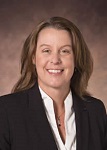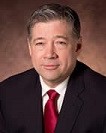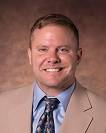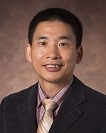Breadcrumb

Safety Sciences
What is Occupational Risk and Safety Science?
The primary focus for the safety profession is prevention of harm to people, property, and the environment. Safety professionals apply principles drawn from such disciplines as engineering, education, psychology, physiology, enforcement, hygiene, health, physics, and management. They use appropriate methods and techniques of loss prevention and loss control. "Safety sciences" is a twenty-first century term for everything that goes into the prevention of accidents, illnesses, fires, explosions, and other events which harm people, property, and the environment.
About UCM's Occupational Risk and Safety Sciences Degree Programs
Assistant Professor Wesley Tinker and recent graduate, Samantha Deason, describe the University of Central Missouri's safety sciences program. Located within UCM's School of Geoscience, Physics, and Safety, the safety degrees are accredited by the Applied and Natural Science Accreditation Commission of ABET. Undergraduate students may select from a number of options to pursue a Bachelor's Degree in Occupational Safety. Graduate degree offerings include a Master of Science in Industrial Hygiene and a Master of Science in Occupational Safety Management.
Where do Safety Professionals work?
Our graduates are employed in a variety of settings that include, but are not limited to, the following:
- Oil and gas
- Construction
- Manufacturing and production
- Insurance
- Hospitals
- Airlines
- Utilities
- Government at the local, state, and federal levels.
For more details on where safety professionals work, what they do, and the employment outlook, see the Board of Certified Safety Professionals' document: BCSP's Career Guide to the Safety Profession. Read more about the safety profession from the American Society of Safety Professionals, the American Industrial Hygiene Association, the Occupational Safety and Health Administration, the Mine Safety and Health Administration, the Federal Aviation Administration's Safety Team, the Agency for Healthcare Research and Quality (DHHS), School Safety, and many more.
Why choose Occupational Safety at UCM?
The Safety Science Program provides diverse safety and health programs for undergraduate and graduate students. The curricula are designed to enhance the professional success of the student. The faculty will provide opportunities for the student to develop communication and problem solving skills, networking, and an understanding of safety and health values. You'll learn the safety sciences issues faced in local, national, and global contexts, and how to identify technical solutions to occupational safety and health problems. In addition to achievement awards, UCM's safety programs have more than nine scholarships available to students.

Earn your Graduate Safety Practitioner (GSP) designation along with your UCM BS degree!
All Occupational Safety majors are awarded the Graduate Safety Practitioner (GSP) designation upon application at graduation. A GSP is an alternate path toward the professional certification of Certified Safety Professional (CSP). Only students who graduate from a Qualified Academic Program meeting the standards of the Board of Certified Safety Professionals are eligible for the GSP designation, making it highly respected.
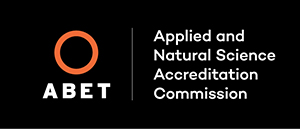
ABET, Applied and Natural Science Accreditation Commission
These Safety degrees are accredited by the Applied and Natural Science Accreditation Commission of ABET.
- Occupational Safety, Bachelor of Science – the only ABET accredited bachelor's degree safety program in Missouri
- Industrial Hygiene, Master of Science – the only ABET accredited graduate industrial hygiene program in Missouri
- Occupational Safety, Management Master of Science - the only ABET accredited graduate occupational safety program in Missouri
Occupational Risk and Safety Sciences Degrees: What would you like to study
... to help protect workers, neighbors, and the planet?
Earn a degree in this high-demand field with excellent employment and salary opportunities. The safety profession focuses on keeping people safe while also preventing harm to property and the environment. Gain hands-on experience with current laboratory and field technology, paid internships, participation in premier conferences, and applied projects.
UCM Catalog

Safety Minor (193) (22 hours)
Completing a minor in safety science provides you with the chance to apply business and risk management practices in the context of your major discipline, such as business, construction management, psychology, criminal justice, and core sciences such as chemistry, biology, geoscience and physics. These combinations can make you a valuable asset to your future colleagues and employer. Note: UCM does not confer teacher certification for this minor.

Environmental, Safety, & Risk Management Bachelor of Science Degree (43-674) (120 hours)
For students who already have an Associate's Degree to complete a BS for Environmental, Safety, and Risk Management.
This Online BS degree completion program is specifically designed for transfer students and is only offered online (no classes offered live on campus). Designed to assist individuals with Associate's Degrees earn a BS degree in a highly competitive career field. Designed to maximize use of credit hours earned in an Associate’s Degree to accelerate time to graduation and reduce cost.

Occupational Safety Bachelor of Science Degree (43-873) (120 hours) Option 1: Environmental Management
The Occupational Safety program's Environmental Management option provides additional education on environmental remediation, air quality and pollution prevention, water quality, wastewater management, and industrial ventilation.
Learn more Program of Study 4-year Guide

Occupational Safety Bachelor of Science Degree (43-873) (120 hours) Option 2: Safety Management
The Occupational Safety BS program's Safety Management option offers the opportunity to customize your course work with approved electives or the inclusion of a minor. Excellent minors include business, construction management, psychology, criminal justice, and core sciences such as chemistry, biology, geoscience and physics.
Learn more Program of Study 4-year Guide

Occupational Safety Bachelor of Science Degree (43-873) (120 hours) Option 3: Occupational Health Management
The Occupational Safety BS program's Occupational Health Management option is ideal for individuals who may be interested in pursuing an MS degree in industrial hygiene. Additional coursework includes biochemistry, human biology, ventilation, noise measurements, and high hazard industries.
Learn more Program of Study 4-year Guide

Occupational Safety BS/Occupational Safety Management MS (accelerated Program) (53-876)
For students looking to complete both a BS and an MS in an accelerated program and includes the three options listed above for the Occupational Safety BS and below for the Occupational Safety Management MS.
Undergraduate UCM students may consult with their faculty advisor and complete a school application to declare the accelerated BS/MS in Occupational Safety. Prior to beginning the graduate portion of the program, student in the accelerated program will need to apply to the UCM Graduate School for formal admittance to the Accelerated BS/MS program.
The Learn More page includes information about the Accelerated model and the three options.

Occupational Safety Management, MS (53-257) (30-36 hours) [Also available as an accelerated program]
This professional degree is offered to prepare students to assist management in the effective use of resources for the development, implementation, and assessment of a comprehensive safety and health program in a variety of occupational settings.
Students are admitted into one of three areas based upon their education and work experience at the time of application. Students must specify which area they are seeking admission into. Once admitted into an area, students may not change areas without applying for a change of degree program through the Graduate School and being approved by Safety Sciences.
Contact: Dr. Miaozong Wu, Coordinator and Advisor for OSM

Industrial Hygiene, MS (53-179) (34-47 hours)
The highly specialized industrial hygiene degree provides an excellent advanced career path.
Contact: Dr. Tsvetan Popov, Coordinator and Advisor for IH
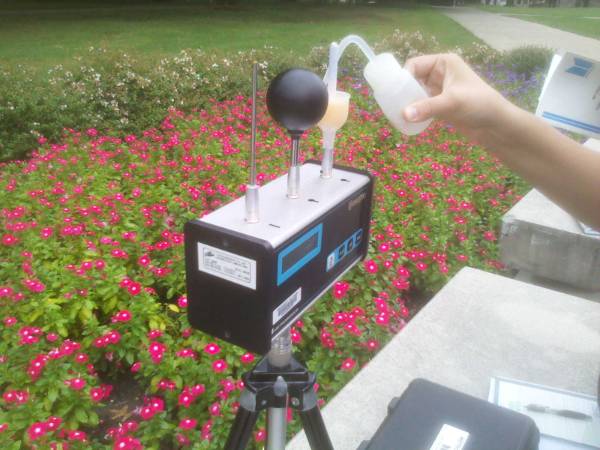
Occupational Safety and Health, BS (43-276)[Archived]
For new students, this degree has been replaced by the 3 option Occupational Safety BS listed above. Students already accepted into this degree program have the opportunity to complete it as planned.
Earn a degree in this high-demand field with excellent employment and salary opportunities. The safety profession focuses on keeping people safe while also preventing harm to property and the environment. Gain hands-on experience with current laboratory and field technology, paid internships, participation in premier conferences, and applied projects.
Program Student Outcomes
At the time of graduation, students with a Bachelor of Science degree in Occupational Risk and Safety Sciences will be able to:
- Anticipate, recognize and evaluate hazards for the development of control strategies through the application of math, science, business and risk management concepts.
- Formulate, design, implement and evaluate safety, health and/or environmental programs.
- Communicate professionally both verbally and in writing as an individual and as a contributing member of a multidisciplinary team.
- Identify and interpret applicable standards, regulations, and codes in a global society.
- Conduct an accident investigation including root cause analysis and development of a corrective action plan.
- Demonstrate the ability to use the techniques, skills, and modern scientific and technical tools necessary for professional practice of the fundamental aspects of safety, health, and environmental sciences (SH&E).
- Design and conduct experiments and formulate an analysis and interpretation of associated qualitative, semi-quantitative and/or quantitative data.
- Apply SH&E knowledge and principles in an internship, cooperative, or supervised experience.
- Understand and communicate professional and ethical codes.
- Develop the business case and demonstrate the value of SH&E interventions
- Develop SH&E training utilizing appropriate adult learning theories and techniques to meet diversity in occupational settings.
- Articulate the need to maintain technical professional competency of contemporary issues in order to understand the impact of SH&E solutions in a global and societal context.
At the time of graduation, students with an MS Occupational Safety Management degree will have an ability to:
- Identify, formulate, and solve broadly defined technical or scientific problems by applying knowledge of mathematics and science and/or technical topics to areas relevant to the discipline.
- Formulate or design a system, process, procedure or program to meet desired needs.
- Develop and conduct experiments or test hypotheses, analyze and interpret data and use scientific judgment to draw conclusions.
- Communicate effectively with a range of audiences.
- Understand ethical and professional responsibilities and the impact of technical and/or scientific solutions in global, economic, environmental, and societal contexts.
- Function effectively on teams that establish goals, plan tasks, meet deadlines, and analyze risk and uncertainty.
- Develop a project or research activity resulting in a report that demonstrates both the mastery of the subject matter and a high level of communication skills.
Program Educational Objectives
Graduates with a Bachelor of Science in Occupational Risk and Safety Sciences will be prepared to attain the following objectives:
- Anticipate, recognize, and evaluate hazards, exposures, and risk through development and management of control strategies for hazardous conditions and work practices.
- Uphold the responsibilities of the profession to protect people, property, and the environment in a global or societal market with personal integrity and honesty through adherence to professional ethical codes.
- Acquire and evaluate evolving SH&E-related information through research, and the application and continuing development of abilities, skills, and knowledge gained in the program to identify practical solutions for safety issues.
- Continually enhance discipline-specific technical competencies, skills, and knowledge by seeking certification, and through active participation in professional societies, conferences, workshops, networking, continuing education, and/or other professional development activities.
- Develop, implement, and provide ongoing leadership for organizational SH&E programs.
Program Educational Objectives for MS Occupational Safety Management include:
- Demonstrate the ability to communicate professionally, both verbally and in writing.
- Demonstrate knowledge of professional integrity and ethical standards.
- Recognize the importance of contemporary, global and societal issues as they relate to the practice of occupational safety and health.
- Develop, coordinate, and/or participate on multidisciplinary teams to protect people, property, and the environment.
- Recognize the importance of life-long learning for the purpose of enhancing technical competencies in safety, health and environmental fields.
Graduation Requirements
- A minimum 2.2 cumulative GPA.
- The grade of C or better must be attained in all designated safety, math, and science courses.
- An assessment examination must be completed during the last semester of course work
Get involved in safety outside the classroom!
At UCM, we value engaging learning experiences that include student involvement and service-learning projects. In Occupational Safety and Health, there are several involvement opportunities:
- American Society of Safety Professionals - Students, Faculty sponsor: Ms. Monica Nevels and Mr. Wesley Tinker
- American Society of Safety Professionals - Fact Sheet
- American Industrial Hygiene Association - Students, Faculty sponsor: Dr. Miaozong Wu
- Air and Waste Management Association, Faculty sponsor: Dr. Georgi Popov
- Rho Sigma Kappa Honor Society, Faculty sponsor: Mr. Anthony Hirner and Mr. Wesley Tinker
Safety Sciences Faculty
The Safety Sciences student to faculty ratio is 17 to 1, which allows professors to get to know you and provide personalized attention. In addition to diverse backgrounds and experience, they are also active participants in research and scholarly activity. Faculty members are active in professional organizations and have presented at national and international conferences.
Occupational Risk and Safety Sciences Updates
Top Safety Journal Articles
UCM Faculty Member, Alumnus, Recognized for Top Safety Journal Articles
by Jeff Murphy, June 18, 2020
"WARRENSBURG, MO – The American Society of Safety Professionals (ASSP) Editorial Review Board has recognized two research articles co-written by a University of Central Missouri faculty member and a UCM alumnus among the top three best member-authored works published by “Professional Safety Journal (PSJ)” for 2019.
In its online announcement, Dr. Georgi Popov, CSP, QEP, ARM, SMS, CMC, FAIHA, professor in the UCM School of Geoscience, Physics, and Safety Science, and Bruce K. Lyon, CSP, PE, SMS, ARM, CHMM, a university graduate and safety sciences advisory board chair who serves as vice president of Hays Company of Kansas City, are recognized for contributing the first- and third-place articles in PSJ..."
Professional Certification
College Professor, Department Chair on Importance of Professional Certification:
Leigh Ann Blunt, a 21-Year Educator, Understands the Importance of BCSP Certification
on BCSP.org, published on Tuesday, May 12, 2020
Outstanding Safety Educator
Blunt Honored as ASSP's Tarrants Outstanding Safety Educator
by Jeff Murphy, April 29, 2020
The American Society of Safety Professionals (ASSP), an organization that represents
40,000 members across the globe, has named Leigh Ann Blunt ASSP's 2020 William E.
Tarrants Outstanding Safety Educator.
GSP Qualified Academic Program
Signifying a ‘Gold Standard’ is Met, Safety Degree from UCM Becomes GSP Qualified Academic Program
by Jeff Murphy, January 10, 2020
Safety Olympics, April 2023
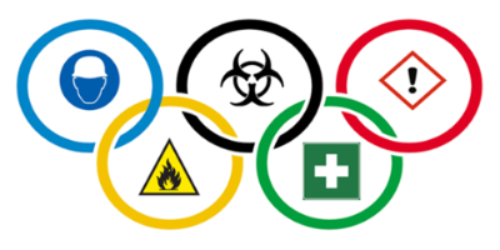
Safety Olympics, coming to a University near you...April 2023
Occupational Safety Management Coordinator & Advisor
Dr. Miaozong Wu, ARM, LMU, CSP
Humphreys 320
(660)543-4411
Tel: miawu@ucmo.edu
Instructional Hygiene Coordinator & Advisor
Dr. Tsvetan Popov, CIH, CSP
Humphreys 324
(660)543-4411
Tel: tpopov@ucmo.edu
GPS School Chair (Interim)
Dr. Georgi Popov, QEP, CSP, ARM, SMS, CMC, FAIHA
Professor, Safety Sciences
Humphreys 327A
Tel: (660) 543-4208
Fax: gpopov@ucmo.edu
GPS Office Professional
Kate Kuhlman
Humphreys 225A-2
(660) 543-4626
Tel: Kuhlman@ucmo.edu






